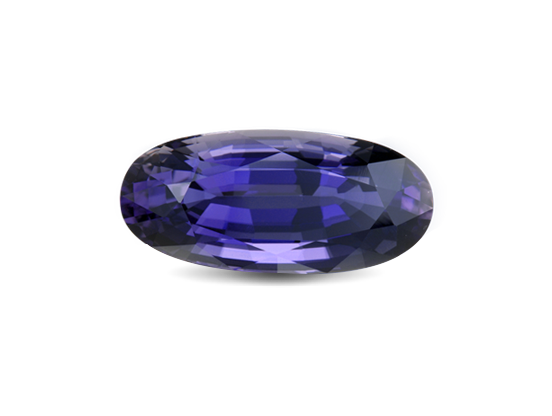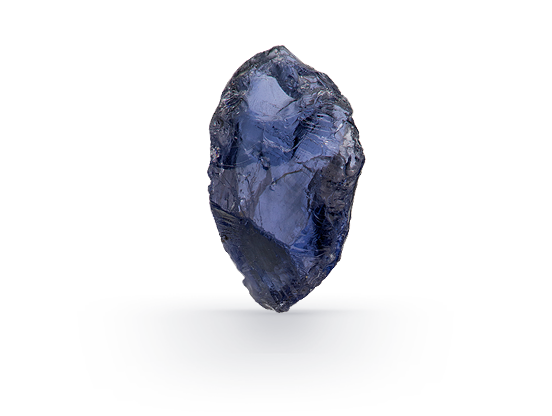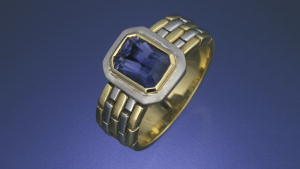Overview
In legends, ancient Viking navigators used thin slices of iolite as filters to help locate the sun on cloudy days. Whether or not the tales are true, iolite (mineralogists call it cordierite) can be fashioned into beautiful gems. Strongly pleochroic iolite has been incorrectly called “water sapphire,” as it can display a blue to violet hue in one direction and pale yellow to colorless in another.
Birthstones & Anniversaries
Iolite is the gemstone for the twenty-first wedding anniversary.Ios
Iolite’s name is from the Greek word ios, meaning violet.
Pleochroic
When you turn iolite, you’ll see three distinct colors in three crystal directions.
Au Natural
Iolite is not typically treated. This is an attractive selling point for some consumers.
Facts
-
Mineral:
Iolite (Cordierite)
-
Chemical composition:
Mg2Al4Si5O18
-
Color:
Violetish blue (pleochroic colorless-yellow)
-
Refractive index:
1.542 - 1.551
-
Birefringence:
+0.045, -0.011
-
Specific gravity:
2.61
- Mohs hardness: 7.0 – 7.5
Treatments
There are a number of processes used to alter the color, apparent clarity, or improve the durability of gems.
Learn MoreSynthetics
Some gemstones have synthetic counterparts that have essentially the same chemical, physical, and optical properties, but are grown by man in a laboratory.
Learn MoreImitations
Any gem can be imitated—sometimes by manmade materials or by natural materials chosen by man to impersonate a particular gem.
Learn More
Why We Love This Gemstone
Stunning Color
In its best colors, iolite can rival the beauty of tanzanite but at a fraction of the cost.
Phenomenal
Usually transparent, iolite sometimes contains inclusions that cause attractive phenomena.
Iron
Iolite’s beautiful violet-to-blue hue is due to the presence of iron in its structure.
Quality Factors
The following factors combine to determine an iolite’s value.
Color

Iolite’s most desirable colors are in the violetish blue to fine blue range.
Clarity
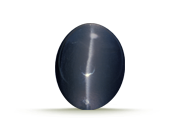
Properly oriented inclusions can cause cat’s-eyes and aventuresence.
Cut
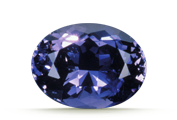
Iolite is most often faceted, as this cutting style serves to highlight its fine transparency.
Carat Weight
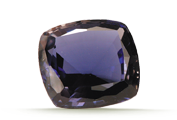
Fine-quality faceted iolites over five carats are relatively rare in the market.
Iolite Quality Factors: The Comprehensive Guide
Research
Explore sources, gemological research, and the role of gems in history.
A Prospectors’ Guide Map to the Gem Deposits of Sri Lanka
C. B. Dissanayake and M. S. Rupasinghe , Sep 1, 1993 Read ArticleRecommended Reading

Gemstones of the World
Walter Schumann



